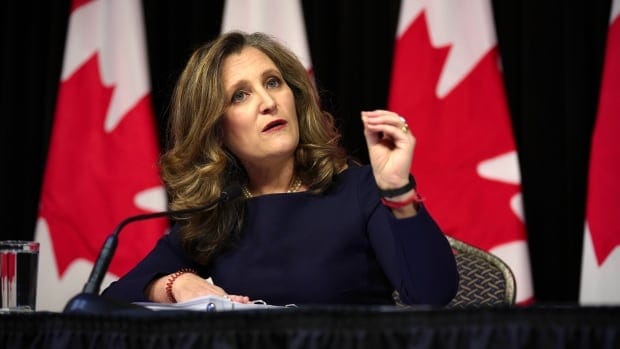Expanding Housing Initiatives and Tax Adjustments
In an ambitious move to address the housing crisis and support various social programs, Ottawa has outlined a substantial increase in budget spending, projecting a total of $52.9 billion over the next five years. Finance Minister Chrystia Freeland has spotlighted housing as a key concern, earmarking $8.5 billion in new funds to help millennials and Generation Z secure homes.
Amidst these spending hikes, the Federal Budget also anticipates a $40 billion deficit for this fiscal year. To balance the scales, Freeland proposes raising capital gain taxes for the wealthy and corporations, which is expected to generate approximately $19 billion in new revenue. This measure is part of a broader strategy to make the tax system more equitable and support the middle class.
However, the growing national debt casts a long shadow over these plans. Servicing the debt is becoming increasingly costly, now surpassing healthcare spending for the current year. With interest rates at their highest in two decades, public debt charges have surged, demanding strategic financial management to maintain Canada’s triple-A credit rating.
Major Budget Allocations
The Federal Budget also includes significant allocations for social welfare: a $6 billion Canada Disability Benefit, a $1 billion national school food program, and a $500-million fund dedicated to youth mental health. These initiatives reflect the government’s commitment to supporting vulnerable populations and improving overall well-being.
Freeland’s housing strategy aims to facilitate the creation of approximately four million new homes by 2031. This includes investments in municipal infrastructure, loans for rental construction, and support for non-profits to maintain affordable rental housing. Additionally, tax-free savings accounts will be maintained, mortgage terms extended, and RRSP withdrawal limits increased for first-time homebuyers.
While these measures are designed to foster a more inclusive housing market and support Canadians’ aspirations for homeownership, they are not without their critics. Conservative Leader Pierre Poilievre has expressed skepticism about the budget’s impact on inflation and the economy.
On the other hand, New Democratic Party Leader Jagmeet Singh has advocated for higher taxes on the wealthy to redistribute the fiscal burden more fairly. The NDP’s support for the budget remains tentative as they assess its alignment with their priorities.
The Federal Budget’s bold steps toward housing reform and tax adjustments reflect a strategic approach to addressing immediate social needs while planning for long-term economic stability. As debates unfold, the government’s ability to navigate these fiscal challenges will be closely watched by Canadians across the country.






